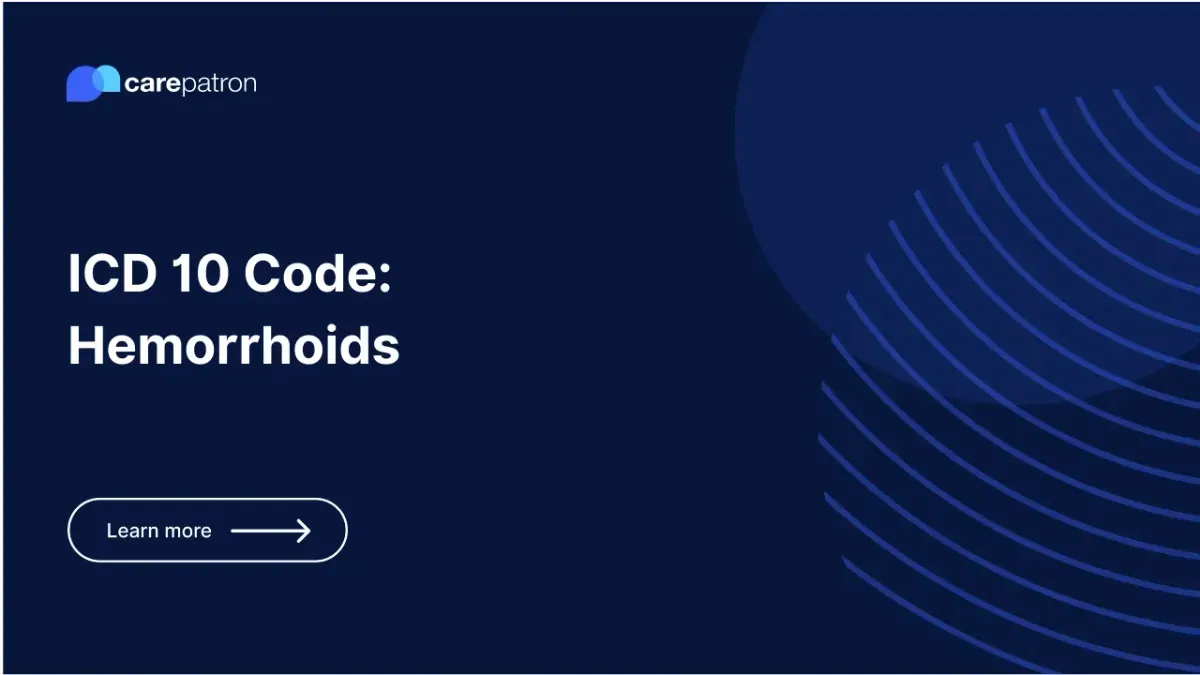
Hemorrhoids ICD-10-CM Codes
Learn about Hemorrhoids ICD-10-CM Codes, including first to fourth-degree hemorrhoids, perianal venous thrombosis, billing tips, symptoms, and treatment.
Use Code
Commonly asked questions
No, the code K64.0 specifically represents first-degree hemorrhoids and should not be used for other types or severities of hemorrhoids. Accurate coding requires selecting the code that best matches the hemorrhoid's degree, symptoms, and presentation.
The code K64.8 is used for other hemorrhoids, which covers cases that don't neatly fit into the first through fourth-degree classifications. It can also include related conditions like perianal venous thrombosis or residual hemorrhoidal skin tags.
Yes, all standard hemorrhoid ICD-10 codes, including K64.0 through K64.9, are billable as long as proper documentation supports the diagnosis. Correct use of specific codes ensures accurate reimbursement and appropriate clinical tracking.
EHR and practice management software
Get started for free
*No credit card required
Free
$0/usd
Unlimited clients
Telehealth
1GB of storage
Client portal text
Automated billing and online payments
